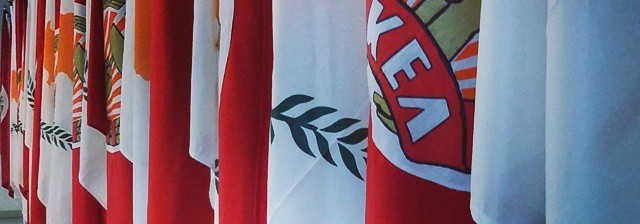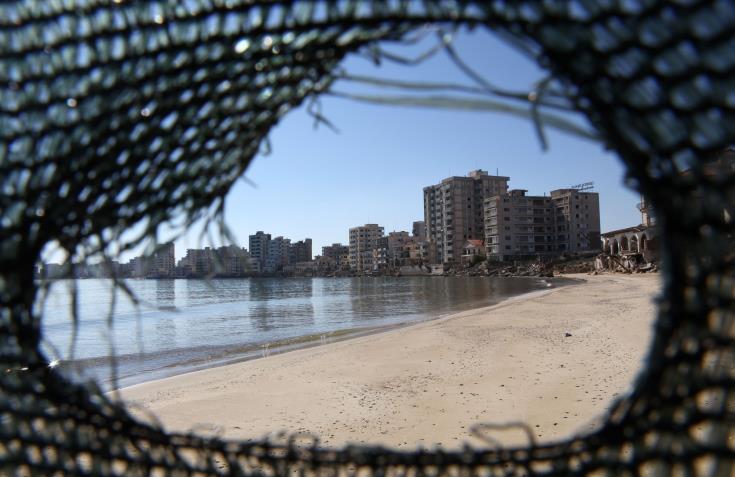
Statements by the General Secretary of the C.C. OF AKEL Andros Kyprianou on the latest developments on the Cyprus problem
AKEL C.C. Press Office, 8th May 2017, Nicosia
I want to express my regret that yet again Mr. Anastasiades is putting the upcoming elections and his personal interest over and above the interests of the next generations, something that in the end will be destructive for Cyprus and the Cypriot people as a whole. Worst of all is that this is happening at a time – at least according to all that we are hearing – when there is even a little progress recorded on the negotiating table.
Our own efforts should now have been to maximize this progress and channel developments in the direction of the solution. If we believe that the negotiation procedure will stop today, and after the presidential elections in 2018, regardless of who will be elected, that the procedure will resume again from the point where it had stopped, I think we are being politically naive. There will be extremely negative developments on the ground, which will make the work of any subsequent President of the Republic even more difficult.
In saying this, I also want to address those political parties that are insisting on a change in the strategy with regards the Cyprus problem, and to tell them that the policy they are proposing today has been repeatedly tested in the past. It was also pursued during the administration of Nikos Anastasiades as well. For an entire year, Mr. Anastasiades was following the advice of these parties. Back then the very same political figures and media were applauding him.
What was the result of this policy?
We were forced to agree to a joint communique with losses.
We did not manage for a whole year to have any substantive negotiations.
The Turkish vessel “Barbaros” was roaming freely on the southern coasts of Cyprus without anyone reacting.
We received the worst report ever submitted by the UN Secretary-General since 2004.
This is precisely where the strategy which the other political parties are proposing, will lead to.
I urge the Cypriot people to comprehend the critical times we are going through and to send a strong message to Mr. Anastasiades and the other political parties, as of today. It should react to all these approaches because it will be late until the presidential elections.
I want to say something else. Mr. Anastasiades, when he was in opposition, but also during the previous years as President of the Republic, insisted on discussing with the other political parties that any disputes we may have with the UN Secretary General’s Special Representative here in Cyprus must be resolved behind closed doors; that they shouldn’t assume any public dimensions which might cause problems in our relations with the UN.
He has forgotten everything he was saying when he was in opposition now that we are approaching the presidential elections by completely transforming his positions.
I hope and wish that Cyprus and the people of Cyprus will not pay a heavy price for this mutation and transformation…
Press reports state that the four freedoms that are frequently being projected by the government as constituting a thorn in the negotiation procedure may represent a way out for the President of the Republic in the event of a breakdown of the negotiation procedure. And because many political figures were asked to tell us precisely what the four freedoms are about – has the situation been clarified? Do you know what is causing such a big problem in the negotiations?
AK: First and foremost, let’s clarify the issue because there is confusion among a large number of politicians.
There are three basic freedoms according to the UN Declaration and the UN Charter, namely the freedom to acquire property, settle and move. There are four EU cross-border freedoms, which are all applicable to EU Member States and their nationals, and some of them apply to countries that have concluded a customs union agreement. They are the free movement of goods, the free movement of capital, persons and services.
What we are therefore talking about today, because Turkey due to its customs union with the EU with regard to the free movement of capital, the free movement of services, has the possibility of enjoying them; as far as the free movement of products is concerned, it has restrictions mainly concerning dairy and livestock products. The fourth that remains and which is what Turkey is essentially asserting is the freedom of establishment and residence in a country. Now, what exactly is the Turkish side’s demand I do not know.
What I do know is that the issue was resolved between Demetris Christofias and Mehmet Ali Talat, and if we insist on that convergence that was achieved then I think the problem can be resolved.
The convergence stipulated that at the time of the solution the population ratio between Greek Cypriots and Turkish Cypriots would be 4: 1, as was the population ratio in 1974 and as regards the flow of Turkish nationals after the solution again the ratio would be 4: 1, provided that this is acceptable to the EU and Greece, which as a member state of the EU has this right for its nationals, but Turkey doesn’t. That was the convergence then. And to make it clear I do not think that Turkey demands the free movement of all its citizens in Cyprus. I do not know what it is asking at the moment when we are discussing. I know what it was demanding a few months ago, that is an assertion that was unacceptable, and which could not be accepted but we should discuss and convince of the correctness of our own position.
On the meeting with the US Ambassador
AK: We just discussed the latest developments and prospects ON the Cyprus problem. Nothing more.
On the issues regarding the explorations in the Exclusive Economic Zone of the Republic of Cyprus
AK: Our own view is that the Republic of Cyprus has every right to exercise its sovereign rights. Beyond that, what is important is how it exercises them.
I always give as an example what happened in 2010 during the Demetris Christofias administration. We proceeded to the drilling when Turkey was threatening to intervene the international community reacted, with the Russian Federation the first to do so, as well as international community because Demetris Christofias was daily confirming at the negotiating table that he was ready to work towards a solution on the agreed basis. In contrast, when the Turkish vessel “Barbaros” was roaming freely on the southern coasts of Cyprus in 2014, there was no reaction whatsoever. This must be a matter of concern to us, namely what should accompany the exercise of our sovereign rights.





